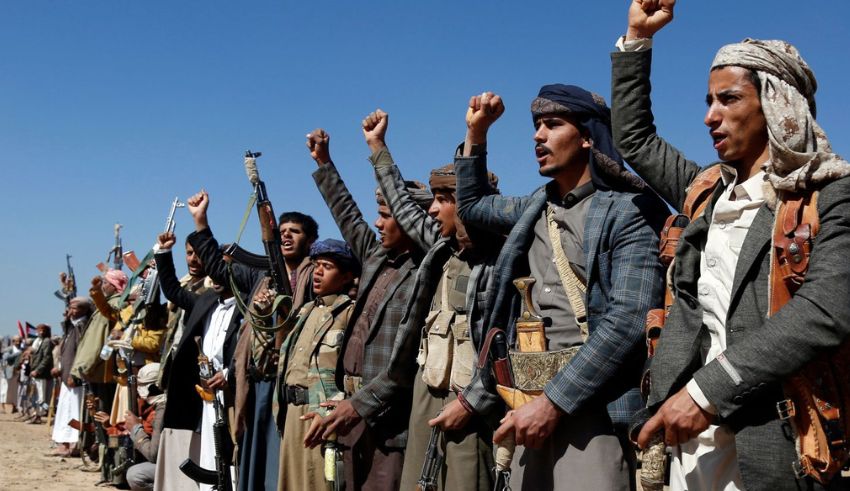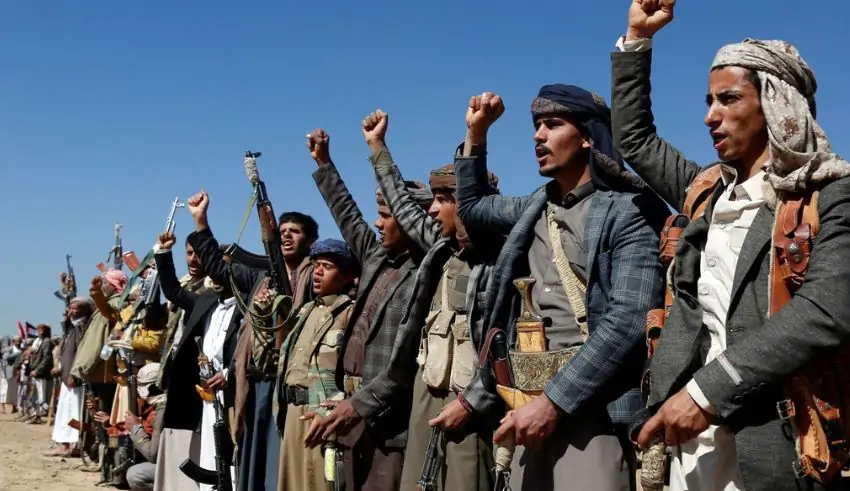

(C) CNN
The Houthis are a rebel group that controls much of northern Yemen, including the capital Sanaa, and has been fighting a civil war against the internationally recognized government of Yemen since 2014.
The Houthis are backed by Iran, which provides them with weapons and training, and are opposed by a Saudi-led coalition, which supports the Yemeni government and conducts airstrikes and blockades against the Houthis. The US, which considers Iran as its main adversary in the region, has also supported the Saudi-led coalition with arms sales and intelligence sharing.
The US has accused the Houthis of being a terrorist organization that threatens the security and stability of Yemen and the region, and that commits human rights violations and war crimes against the Yemeni people. The US has also blamed the Houthis for the humanitarian crisis in Yemen, which is considered as the world’s worst, with more than 80% of the population in need of aid, and millions facing famine, disease, and displacement.
In January 2021, the Trump administration designated the Houthis as a foreign terrorist organization (FTO) and a specially designated global terrorist (SDGT), imposing sanctions and restrictions on the group and anyone who deals with them.
The move was widely criticized by humanitarian groups, UN agencies, and European allies, who warned that the designation would hamper the delivery of aid and the peace efforts in Yemen, and would worsen the suffering of the Yemeni people.
In February 2021, the Biden administration reversed the designation of the Houthis as an FTO, but maintained the designation of the Houthis as an SDGT, saying that it would balance the pressure on the Houthis with the humanitarian needs of the Yemenis. The move was welcomed by humanitarian groups, UN agencies, and European allies, who hoped that the reversal would ease the access and the flow of aid and the dialogue and the negotiation in Yemen, and would improve the situation of the Yemeni people.
The issue was triggered by the recent escalation of violence and tension in Yemen, where the Houthis have launched a major offensive to capture the oil-rich city of Marib, the last stronghold of the Yemeni government in the north, and have increased their cross-border attacks on Saudi Arabia, using drones and missiles. The issue was also triggered by the recent failure of the diplomatic efforts to end the war in Yemen, where the UN envoy for Yemen resigned after four years of fruitless mediation, and where the US envoy for Yemen failed to persuade the Houthis to accept a ceasefire and a peace plan.
The reaction of the US to the issue was to announce its plan to relist the Houthis as an FTO and an SDGT, saying that the move was necessary to hold the Houthis accountable for their actions and to pressure them to stop their aggression and to join the peace process. The US also said that the move would not affect the humanitarian assistance and the diplomatic engagement in Yemen, and that it would coordinate with its partners and allies to mitigate the impact of the move.
The reaction of the Houthis to the issue was to reject and denounce the US plan, saying that the move was a sign of the US hostility and bias towards them and their cause, and that it would not deter them from continuing their resistance and their struggle. The Houthis also said that the move would not change the reality and the balance of power on the ground, and that it would only complicate and prolong the war and the crisis in Yemen.
The reaction of the humanitarian groups, UN agencies, and European allies to the issue was to express their concern and alarm over the US plan, saying that the move would have a devastating and disastrous effect on the humanitarian situation and the peace prospects in Yemen, and that it would endanger the lives and the livelihoods of millions of Yemenis. They also urged the US to reconsider and reverse its plan, and to focus on supporting the political and the humanitarian solutions in Yemen.
The issue has implications and prospects for the future of Yemen and the region, as well as for the US and the international community. On one hand, the issue could worsen and prolong the war and the crisis in Yemen, and increase the suffering and the misery of the Yemeni people. On the other hand, the issue could also create and facilitate the dialogue and the cooperation in Yemen, and open the opportunity for peace and recovery.
The issue also depends on the actions and the responses of the US, the Houthis, and the other parties involved, such as the Yemeni government, the Saudi-led coalition, the UN, and the humanitarian groups. They could either support or oppose the US plan, and either encourage or discourage the humanitarian assistance and the peace efforts in Yemen. They could also propose or oppose additional measures or initiatives to address and resolve the issue and to maintain and promote the humanitarian situation and the peace prospects in Yemen.
The issue of the US terrorist designation of the Houthis is a complex and controversial issue that requires careful and prudent handling and management, as well as constant and constructive dialogue and consultation, among all the parties concerned. The issue of the US terrorist designation of the Houthis is not only a matter of security, but also a matter of humanity, justice, and dignity.
The issue of the US terrorist designation of the Houthis is not only a bilateral issue, but also a regional and a global issue that affects the interests and the values of many countries and actors. The issue of the US terrorist designation of the Houthis, therefore, is a challenge and an opportunity for the US, the Houthis, and the world.
OpenAI updated ChatGPT-4o to include its best text-to-image tools so free users can generate Studio Ghibli artwork by giving basic…
The stepping down of Piyush Gupta from the post of CEO of DBS Bank came after 15 years of leading…
The Delhi Directorate of Education releases 2025-26 marks for year-end tests in school levels 6 through 11. Online test data…
Singapore will further cement its status as an important basketball destination when it hosts three FIBA 3x3 events in 2026…
Jewel Section E, directed by Theodore Boborol and starring Ashtine Olviga as Jay-Jay Mariano, Andres Muhlach as Mark Keifer Watson,…
Cebu Pacific celebrates the delivery of its very first aircraft for 2025, the 459-seat Airbus A330neo, delivered at Ninoy Aquino…
This website uses cookies.
Read More